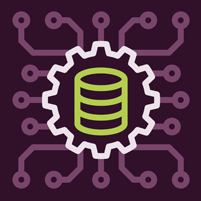Overview
SDSS 2026 will offer many opportunities to learn about new data tools and methodologies, see data science in action, and network with experts. Sessions center on the following four topic areas:

This track focuses on the impact of machine learning, computational statistics, and statistical methodology with applications to industry, government, and academia. We encourage case studies and novel contributions, including discussions about data visualizations, ethics, privacy, reproducibility, transparency, interpretability, robustness, statistical thinking, and the overall value to society.

This track focuses on advancing data science and statistics education and workforce development. We invite submissions that present effective curriculum design, instructional innovation, professional training, and large-scale organization of educational programs, including interdisciplinary programs and partnerships between academia, industry, and government. Topics include fostering data literacy; integrating emerging technologies into teaching; and supporting career growth through mentoring, workshops, and lifelong learning. We welcome research studies and evidence-based practices to enhance the skills of data scientists and statisticians at all career stages.

This track focuses on addressing the intersection of the underlying technology infrastructure necessary for applied data science and statistics. We encourage contributions detailing how computer hardware, networking, data management, SQL/NoSQL/object databases, version control, and related systems/services—whether in the cloud or on-premises—support applied data science and statistical thinking, outcomes, and decision-making in diverse settings. We welcome practical examples, discussions, and demonstrations.

This track focuses on showcasing innovative uses of artificial intelligence and large language models in data science research, practice, and education. We welcome case studies and methodological advances that demonstrate how AI and LLMs enhance data workflows, analytical capabilities, and knowledge discovery. Topics may include LLM integration in data pipelines, agent development, intelligent tools for visualization/communication, and the evolving role of data scientists in an AI-augmented world. Ethical implications, model interpretability, and cross-sector collaborations are especially encouraged, as are educational initiatives preparing data professionals to effectively engage with AI technologies.

